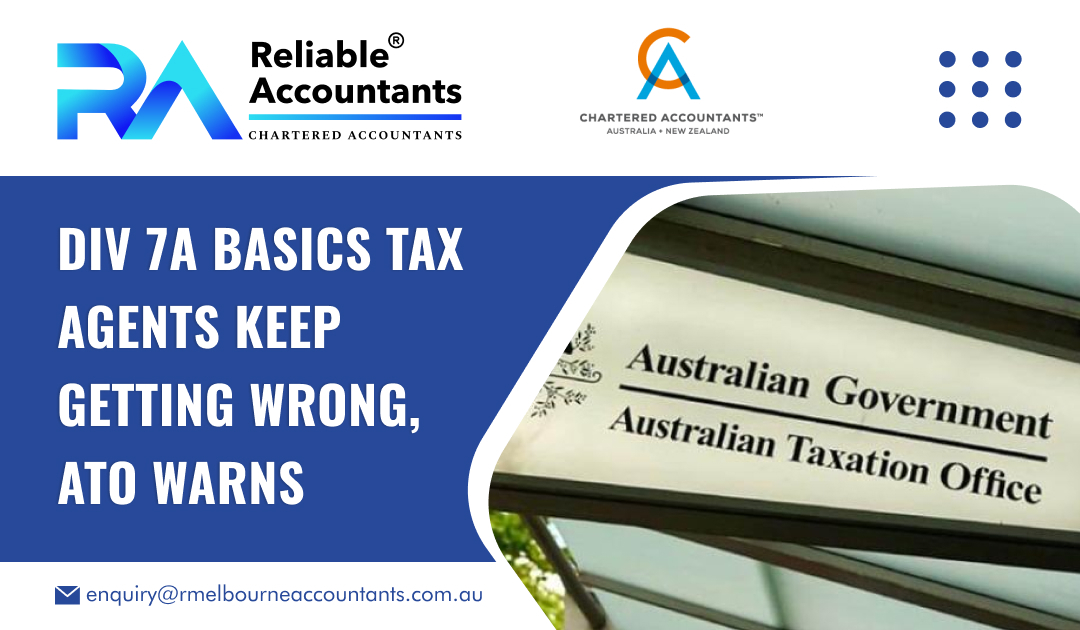The tax office found most breaches in relation to misunderstandings of basic concepts, that’s why it has started a year-long lecture series on Division 7A.
Tax agents across the board still keep getting Division 7A wrong by avoiding basic concepts, the ATO says. During the launch of a year-long campaign to provide “tough messages” to tax agents to highlight the errors regarding Division 7A, assistant commissioners Kasey Macfarlane and Anthony Marvello told participants they were not happy and were disappointed with how many tax agents in the industry were not focused on getting fundamental right.
Marvello said that they are worried about the number of errors and less attention being paid to getting the fundamentals right when navigating the tax consequences when owners benefit from their companies.
Violations of basic requirements were happening, according to Macfarlane, with the ATO finding 2/3 of Division 7A violations related to basic aspects of the provision. She said that from very small businesses to the largest and private wealth groups, it’s distributed evenly across, and they are common across the board.
Another problem is not maintaining separate bank accounts for individuals and managing payments and not maintaining records for payments made by the company. Macfarlane said clients were also not complying with loan agreements and not making minimum yearly repayments, whether it’s about miscalculation, not being aware of records or making late payments.
An increase in the benchmark interest rate to 8.27% from 4.77% in FY2023-24 also required advisers to track interest rate fluctuations when making minimum yearly repayments.
She said that tax agents are required to take responsibility by conducting proper discussions with customers and annually checking. Not all payments result in a rise to a Division 7A consequence. However, every payment from a private company has a tax consequence. And there is nothing related to an obligation-free, benefit from a private company or tax-free payment.
For tax agents with clients who didn’t want to avoid the section’s application, the assistant commissioners warned. Some might think it’s cute not to report the Division 7A shareholders’ loans at income tax return labels, but it doesn’t mean that you will escape any scrutiny from the ATO.
Marvello further added they can’t borrow money from the company for their minimum yearly repayments and they start being cute, she said that if they think that they are paying for it but they are not really paying, then it won’t work.
The assistant commissioners also said that they noticed clients with Division 7A issues that cropped up because of an ATO review requesting the commissioner’s decision under section 109RB to overlook their violations because of the honest mistake of their agent.
It meant that some reasons highlight that there may be some that are not applying the high level of care and due attention required, Macfarlane said.
The discretion is not a get out of jail free card in every circumstance where there is a Division 7A issue. And that’s why it is important to maintain records, plan ahead, understand the payments that come from the company and ensure obligations are met as the discretion is not there to fix every issue that arises after the event.
More Useful Links:
Tax Return Accountant

